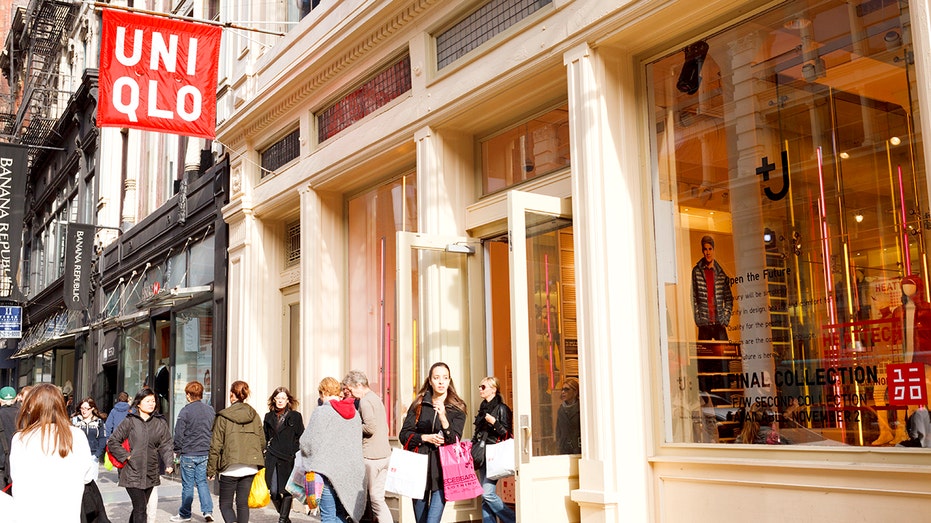Uniqlo shirt-folding robots could make Japanese factory fully automated
The factory already replaced 90% of its workers
Japanese clothing chain Uniqlo is reportedly making its way to becoming fully automated in Tokyo at its flagship warehouse as the country faces a shortage of workers.
Uniqlo’s parent company, Fast Retailing, partnered with Mujin Inc., a Japanese intelligent industrial robot controller manufacturer, to create a new two-armed robot that can pick up T-shirts and box them up so they can be sent out to customers, according to The Financial Times report.
| Ticker | Security | Last | Change | Change % |
|---|---|---|---|---|
| FRCOY | FAST RETAILING CO. LTD. | 41.69 | +1.19 | +2.94% |
In 2018, the company already replaced 90 percent of its workforce with robots at its flagship warehouse, the outlet reported.
Uniqlo and Mujin have not immediately responded to FOX Business' requests for comment.
ROBOTS MORE LIKELY TO REPLACE US WORKERS IN THESE 10 AREAS
"It's becoming extremely difficult to hire workers, and it's a lot more than people think," Fast Retailing executive vice president Takuya Jimbo said in an interview with The Financial Times. "We have to be the frontrunner and continue trial and error because only the companies that can update their business models can survive."
The struggle to hire workers that Jimbo is referring to is due to the country's labor shortage that was sparked by years of declining birth rates.

Fast Retailing sells 1.3 billion items of clothing per year, according to the company's annual report. While facing a shrinking and aging population, the need for automation may seem like a vital move in order to keep up with demand.
ROBOTS AT WORK: LIST OF COMPANIES ALREADY USING THEM
“We’ve been putting off working with an apparel company because it’s so difficult,” Issei Takino, co-founder and chief executive of Mujin, told The Financial Times. “But Fast Retailing’s strength is its ability to overhaul its entire supply chain to make it fit for automation. If we’re going to take on this challenge, we had to do it with Fast Retailing.”
Japan's population began to decline around 2010 as a result of chronically low birthrates, according to The Wall Street Journal. At the same time, job opportunities were spurred by steady economic growth, creating a labor shortage.
ARE ROBOTS READY TO TAKE OVER JOBS?
According to government statistics from May, the number of births in 2018 fell to 921,000, the lowest since Japan began recording such statistics in 1899. Japan’s total population fell by 448,000 people, a record decline, to 126 million.
Japan’s population is forecast to fall below 100 million by 2050, barring a huge influx of immigrants. To counter the decline, earlier this year Japan started allowing more foreign workers to ease a labor crunch.
As the population continues to age and shrink, companies, as in this case, are forced to reconfigure their business models.
GET FOX BUSINESS ON THE GO BY CLICKING HERE
Since being founded in the late 1940s, Uniqlo has leveraged its prowess in mass production to build a fashion empire filled with shelves upon shelves of affordable, good-quality items like down jackets, underwear and T-shirts.
The retailer, with scores of locations available worldwide, is on a quest to beat Western giants like Gap, H&M and Zara, which dominate the global fast fashion market, to become the world’s biggest apparel maker, according to a 2018 report by ResearchAndMarkets.com.
The Associated Press contributed to this report.




















